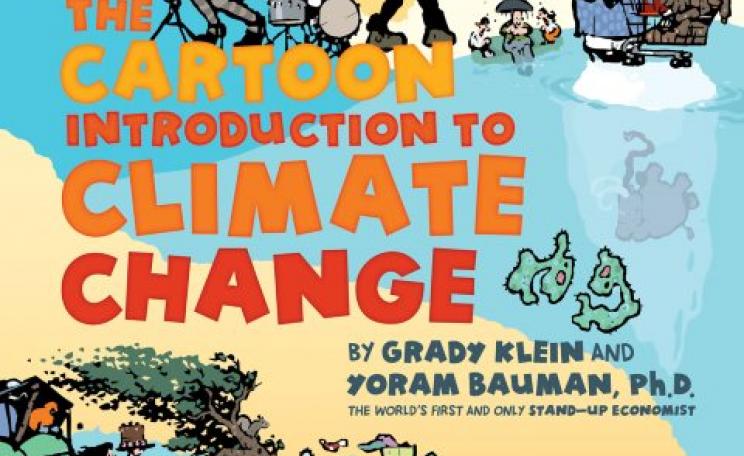Our affluent way of life will be forced to change once the oil wells dry up
More about the title’s “convivial” policies anon.
Instead, let’s begin with a 21st Century Arab proverb:
My father rode a camel, I drive a car, my son flies an airplane, his son will ride a camel.
As much a pithy metaphor for the rise and fall of Middle East oil wealth as a summation of the World economy’s parabolic trajectory over the last century and next 50 years, this contemporary piece of wisdom presents - in the context of Michael Bassey’s persuasively argued book - a warning to humankind rather than a dire prediction of its future fate.
That warning, and a more immediate clue to the book’s contents, is implicit in its sub-title: Global Warming, Peak Oil, Economic Chaos. These three 21st Century horsemen of the apocalypse canter through the text, often rearing up menacingly in head-on confrontations with the complacency of our most cherished 20th Century assumptions.
The chief villain contributing to global warming through increased concentrations of anthropogenic greenhouse gases is carbon-dioxide, originating from the burning of fossil fuels such as oil. Despite a minority’s pedagogic insistence to the contrary, the World’s top petroleum geologists are already suggesting that its worldwide production may peak (hence “peak oil”) as soon as 2020, and thereafter decline. Many authorities predict this will result in economic chaos, so completing a troika harness for the apocalyptic horsemen.
The logic of this scenario becomes more starkly apparent when we delve into the reliance society places on oil, which extends far wider than just its fuel applications. During the 150 years since it was first mined in Pennsylvania, the many products developed from refining crude oil have become inextricably woven into the fabric of people’s lives, most critically those inhabiting what are conventionally term the “developed” nations.
Thus our winter morning may begin once the oil-fired boiler kick-starts the central heating, before we switch on the kettle and toaster using electricity probably sourced from an oil-fired power-station, and drink our coffee imported from Peru on a plane powered by (oil-derived) aviation fuel.
Whilst eating our cereal transported perhaps 250 miles on a 30-ton (oil-derived) diesel juggernaut, with milk poured from an (oil-derived) plastic bottle, we happen to glance up at the kitchen ceiling, and remind ourselves not to further procrastinate the thankless task of removing those 1970s (oil-derived) polystyrene tiles.
Our affluent way of life will be forced to change once the oil wells dry up
I could go on. In fact I think I will. We next do the washing-up in our (oil-derived) plastic bowl, place our packed lunch in an (oil-derived) polythene bag, put on our PVC (oil-derived) rain-coat over our (oil-derived) polyester shirt, and walk out to our new car-port with its polycarbonate (oil-derived) roof.
And all this before we even set off on the morning commute in our petroleum driven car along the (oil-derived) asphalt-surfaced A40. This intentionally clichéd domestic narrative is offered merely as an illustration of how, either directly or indirectly, the continuing availability of “black gold” literally oils the wheels of our affluent way of life.
Changes to this will be forced on humanity as the oil wells dry up, demand exceeds supply, the price soars, and usage plummets. Indeed, informed commentators on the geo-politics of oil accept that the “prospect of global climate change means carbon abundance – rather than oil scarcity – is emerging as the critical constraint” (Bridge & Le Billon, “Oil” 2013).
A belated though beneficial effect should be a reduction of greenhouse gases pouring into the atmosphere - with a concomitant reduction in the speed of global warming. But one of its more insidious effects is already upon us - the partial melting of the Arctic ice cap, resulting in the bitter irony that some of multi-national oil companies are now planning to drill for oil in the formerly frozen north.
Eventually the “grow or die” mantra held in such awe by big business will be revealed as a grotesque chimera, clung to by economists and politicians alike well into the 21st Century. Future historians may refer to it disparagingly as the “grow and die” epoch, whilst mockingly characterising the fallen idol of GDP as an abbreviation for “Gradually Dooming the Planet”.
However, they won’t assign all blame to the manifestations of corporate commercial greed, as at least part of the responsibility may be traced back to such institutions as the Organisation for Economic Co-operation and Development.
Article One of its 1960 Convention included the specific aim of achieving “the highest sustainable economic growth”, and only in subsequent decades did enlightenment filter through to some corporate mind-sets, which acknowledged the mutual incompatibility of “sustainable” and “growth”.
One way of envisaging the process is to draw a simple analogy with the human body – growth is needed for a baby to reach childhood, then to develop into an adolescent, and thenceforth into an adult; but thereafter continued growth would, sooner or later, destroy the body.
Thus, especially in developed nations like the UK and, more ominously the rapidly developing mega-states such as China, economic growth should be seen as a globally destructive force. A combination of oil peaking and human-induced climate change may contribute to devastating droughts, floods, food shortages, fishery losses, and coastal inundation from sea-level rises. Knock-on effects might include resource wars and civil unrest.
As Lao Tzu (550 BCE) reminds us: “if you do not change direction, you may end up where you are heading”. Contrary to the aetiology of most environmental writers prior to James Lovelock, we are not Nature’s custodians, she is ours – and she will cast us aside as blithely as she did any extinct species we may care to name.
Whilst contending that societies need to move from economic to cultural growth, Bassey acknowledges such a massive shift in weltanschauung will be a very tall order, whether amongst world leaders or the burgeoning millions of individuals aspiring to greater material wealth - even if that is represented only by the ownership of a first battered moped. In reaching a condition of cultural growth we need to appreciate and value what we have, create things without damaging our planet, and learn how to live convivially.
But how might we achieve such a category of human ontology? Indeed, what is meant by “convivial” in this context? It is not used here in the traditional sense to describe, (for example), the mood of some European oil executives towards the end of a clandestine Middle East drinks party, but rather a “way of living through which people gain quality of life and enjoy happiness by striving to be in harmony with themselves, and with their social, cultural and natural environments”.
This approximates the definition originally put forward by Ivan Illich in his 1973 polemic “Tools for Conviviality”, and it is this that forms the springboard for the essence of Bassey’s book.
And what policies does he identify as “convivial”? Taking the UK economy as a starting point, there should be a minimum living wage, maximum take-home pay, and acceptance that as unemployment is inevitable, our society should be re-orientated so that unpaid work at home or in the community is recognised for its intrinsic value through support via a “universal citizens income”.
In the cause of equitability, the most highly paid would be allowed to receive a maximum of no more than ten times that of the least paid.
Whilst applauding the ends, some readers may blanch at the means of achieving this “convivial” society, since the reconstruction plans involve adopting a neo-medieval sounding model of self-sustaining parishes overseen by mayors, sub-divided into manors run by reeves.
But Chaucerian nomenclature apart, the loss of oil-based freight transport suggests an inexorable logic behind a new era of self-sustaining communities, where citizens cycle between convivial activities, whether tending vegetable allotments or perhaps short rotation coppice plantations of hybrid willow, the latter to provide fuel for wood-burning boilers.
Parish mayors would ensure that all domestic dwellings are insulated against winter cold and photo-voltaic panels fitted to every suitable roof; in the absence of oil-derived agro-chemicals there would of necessity be a huge move towards organic farming.
Significantly, the curtailment of international air freight transport is likely to herald the gradual disappearance from our shops of Cypriot potatoes, Egyptian onions, Kenyan runner beans, Peruvian asparagus, South African apples, etc – all items which clock-up excessive food-miles, but which may be UK-grown for at least part of the year.
Yes, foods should be appreciated in season, and as someone who tends to eat tomatoes every week it came as a shock to learn that only 9% of those consumed in the UK are grown here; many such sobering statistics inform the text.
However, one issue insufficiently highlighted is the global importance of transforming our diets so they incorporate minimum or zero amounts of meat, a move which would release several million hectares of land currently devoted solely to growing animal feed.
Most non-partisan agronomists accept that compared with growing food crops for direct human consumption, farming animals for meat is an inefficient and resource-wasteful method of producing food, even if it remains a cultural imperative for millions.
The case for wholesale dietary change becomes unassailable once we appreciate that industrial-scale animal rearing contributes much of our excess atmospheric methane, a greenhouse gas approximately 20 times more powerful than the carbon-dioxide released from burning fossil fuels such as oil.
Hovering intermittently over the text is Gandhi’s familiar epigram of there being “enough in the World for everyone’s need, but not enough for everyone’s greed”.
Rather more pointedly, those people inextricably bound up in the values and validations of typical growth-orientated, oil-based economies are characterised by Bassey as “wealthists”, whose pursuit of affluence brings about an “acne of over-consumption”, whereas citizens of green, no-growth economies are dubbed “convivialists”.
This theme forms part of an intellectual tradition which may be traced back through previous incarnations, echoing to us across the centuries, eg “No living creature is naturally greedy, except .... in the case of human beings, from vanity, the notion that you’re better than people if you can display more superfluous property than they can; but there’s no scope for that sort of thing in Utopia”, (Thomas More, 1516).
In the process of envisaging the category of people known as “convivialists”, and the utopian societies they may optimistically inhabit towards the end of this Century, Bassey takes well-aimed and justifiable swipes at such contemporary targets as stock exchanges (“obscene rewards for playing the markets ..... and recklessly endangering the environment”), and mass circulation newspapers.
The latter, when not entirely ignoring global environmental threats, misleadingly reports both those threats and the implications for their readers’ great grand-children. The plight of such future generations may hopefully be ameliorated by the rise of “statesmen who have the insight and courage to develop an ecological economy which protects both people and the environment”.
Although an idealised structure of a future world emerges from the text’s unfading avidity, it might have felt more anchored had there been greater acknowledgement of current embryonic initiatives such as the local currencies of transition towns or hydrogen fuel cell technology - the latter dismissed in just one sentence.
But these are relatively minor grumbles, and the strident call for a zero growth economy “underpinned by an ethos of conviviality” forms a coherent vision which will chime harmoniously with the thinking of many readers, even if Bassey himself accepts that on preliminary exposure some of his ideas may seem naive.
He wisely balances them with the assured clarity of quotes from other sources, e.g. “Prosperity consists in our ability to flourish as human beings – within the ecological limits of a finite planet. The challenge for our society is to create the conditions under which this is possible”, (“Prosperity Without Growth”, Sustainable Development Commission, 2009).
Our nation is credited with initiating an economic re-structuring of society through the Industrial Revolution - could the UK pioneer radical ways of ecologically re-structuring society via a 21st Century Green Revolution?
Edgar Vaid is a freelance book reviewer. He can be contacted at orizabalodge@yahoo.co.uk
You can purchase Convivial Policies for the Inevitable from Book Guild Publishing for £17.99
http://www.bookguild.co.uk/convivial-policies-for-the-inevitable-pr-1300.html




